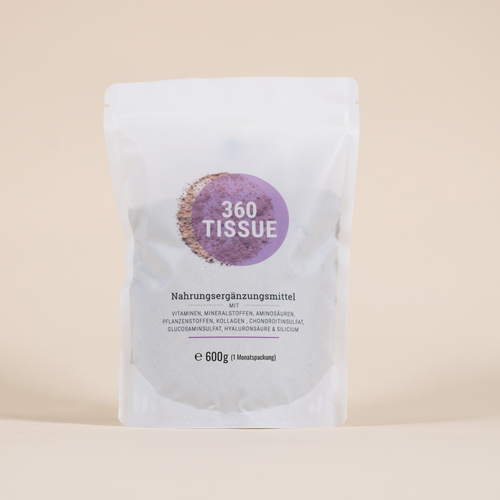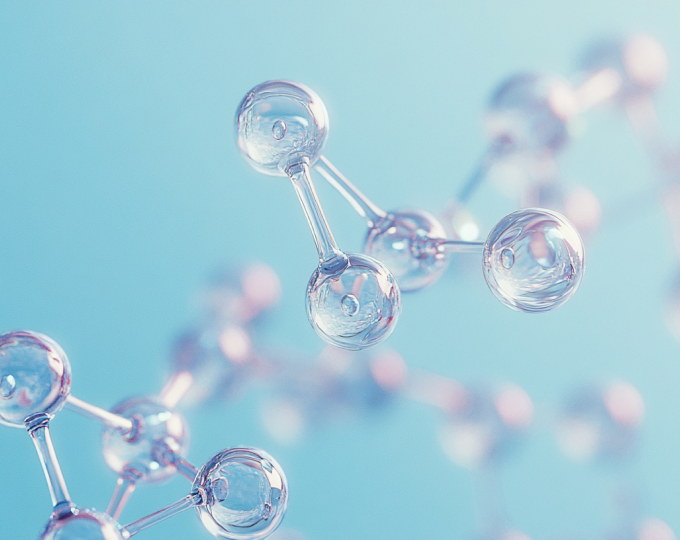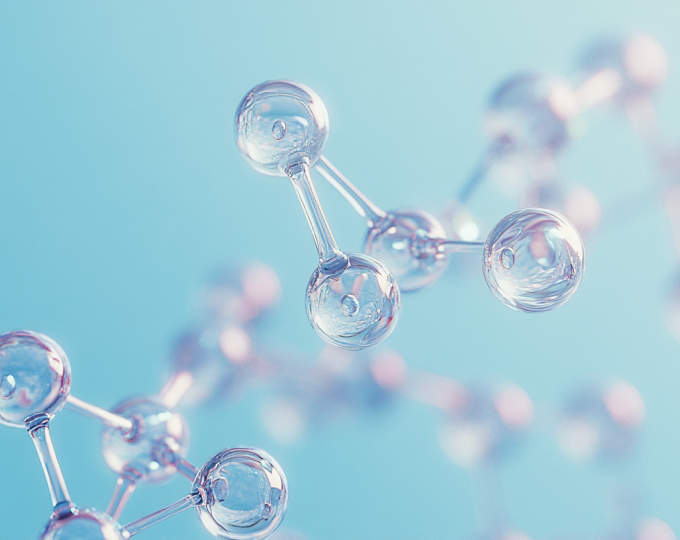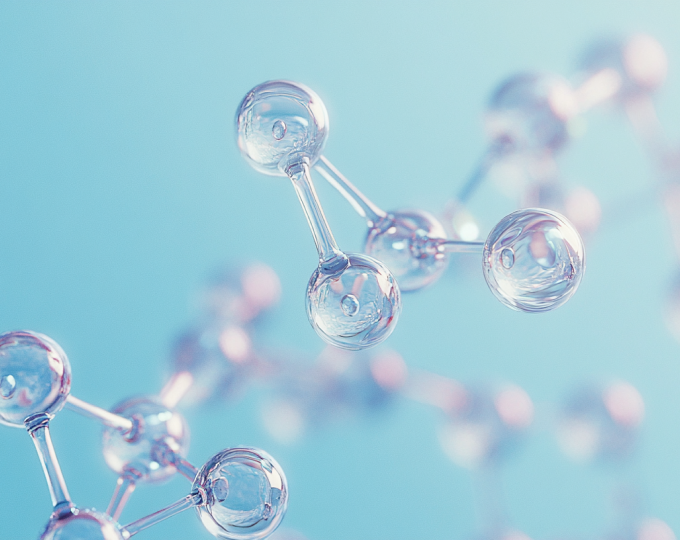Themen dieses Blogartikels:
What is Isoleucine?
Isoleucine is an essential, branched-chain amino acid. It must be obtained from food and, as a branched-chain amino acid, belongs to the BCAA's (branched chain amino acids).
What are the functions of Isoleucine?
Isoleucine is a proteinogenic amino acid, meaning it is needed to synthesize proteins. It is also both ketogenic and glucogenic and can therefore be introduced into the citrate cycle to generate energy or used to synthesize ketone bodies. The latter option is particularly important during fasting phases (from 16:8 interval fasting), as ketone bodies are transported in the blood and absorbed by muscles, for example. A lot of energy can be obtained from them there. Like other BCAA's, the amino acid stimulates the release of insulin1 and can thus ensure increased absorption of metabolites into the muscle2. This promotes muscle maintenance so that the body does not have to resort to its own muscle reserves so quickly.
What makes Isoleucine unique?
Alongside leucine and valine, isoleucine is one of the three BCAA's and, like the other representatives, influences the release of certain hormones.
How much Isoleucine do you need per day?
The German Nutrition Society (DGE) has not yet issued a general recommendation regarding the daily intake of isoleucine. The daily requirement of an adult is probably 19 mg per kilogram of body weight. However, this can vary slightly depending on age, gender and stage of life. Children and adolescents who are still growing need around 25 to 30 mg of isoleucine per kilogram of body weight per day. The requirement is also slightly higher for pregnant and breastfeeding women.3
When do you need Isoleucine most?
A sufficient supply of isoleucine (as well as all other essential amino acids) must be ensured, especially during sport and dieting.
How does an Isoleucine deficiency develop and how does it manifest itself?
A lack of isoleucine mainly affects people who eat a low-protein diet or do not eat animal products. In addition, certain illnesses can lead to the body's absorption of the nutrient being impaired, such as coeliac disease or Crohn's disease. Athletes, pregnant women and breastfeeding mothers have an increased need for isoleucine and should therefore ensure that they have an adequate supply of this essential amino acid. A deficiency can lead to poor concentration and muscle weakness.4
What happens if there is an overdose of Isoleucine?
The Federal Institute for Risk Assessment (BfR) recommends taking a maximum of 2.2 g of isoleucine per day via food supplements.5 Overdosing can lead to an imbalance of amino acids in the body. This is because excessive doses of BCAA can prevent other amino acids from crossing the blood-brain barrier. As a result, too little serotonin is released, for example, which can lead to migraines and depression.6
Which foods are particularly high in Isoleucine?
Isoleucine is protein-bound and is found in a number of foods. Examples are: Beef, chicken breast, walnuts, whole grain products and peas.
This dictionary entry is based on carefully researched sources:
Bibliography & Sources
- https://www.labor-karlsruhe.de/lv/?module=analyte&action=einzel&id=499
- https://www.springermedizin.de/emedpedia/detail/lexikon-der-medizinen-laboratoriumsdiagnostik/isoleucin?epediaDoi=10.1007%2F978-3-662-49054-9_1637
- https://www.vitalstoff-lexikon.de/Aminosaeuren/Isoleucin/Zuühr
- https://medlexi.de/Isoleucin
- https://www.bfr.bund.de/cm/343/futterrgaenzmittel-isolierte-verzweigtkettige-aminosaeuren-koennen-bei-hoher-aufnahme-die-gesundheit-beeintraechtigen.pdf
- https://www.st-georg-apotheke-heide.de/gesundheitsbibliothek/index/bcaa/






















